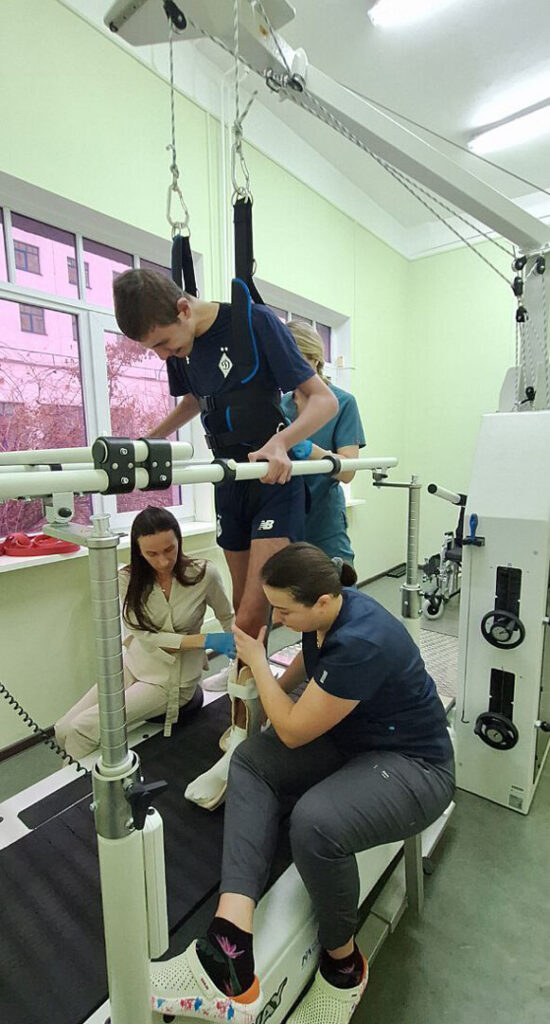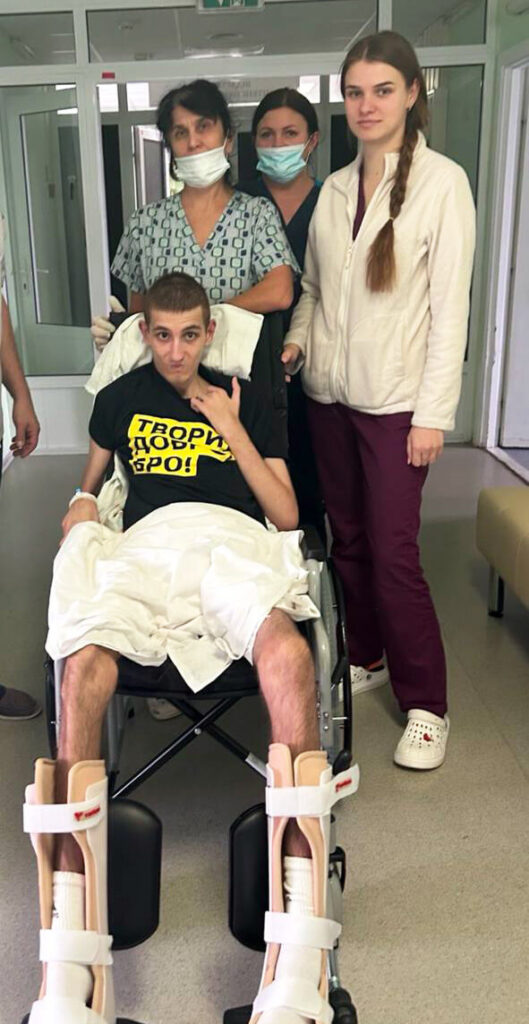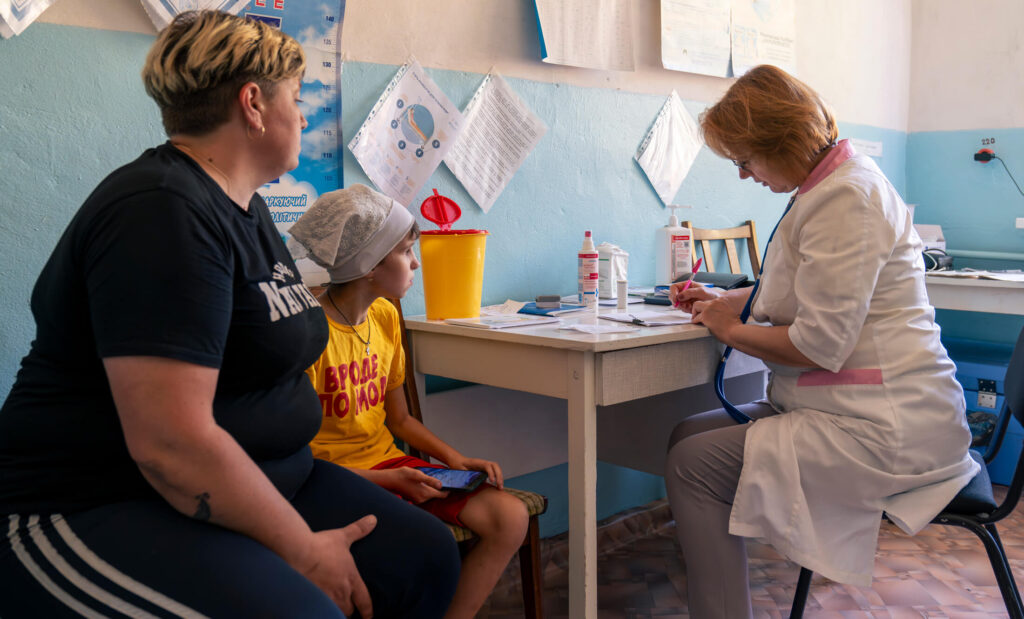It’s been three years since Russia’s invasion of Ukraine. The war—which has left thousands dead or injured and millions displaced—has caused severe shortages of basic necessities like food, drinking water, electricity and medical supplies. Attacks targeting healthcare facilities and infrastructure have increased the challenges of providing timely and effective care to the population.
Children are especially vulnerable, with 1.5 million in the country at risk of post-traumatic stress syndrome, according to UNOCHA. There’s a critical need for comprehensive rehabilitation services for young people who are living each day with the trauma of war and the fear of an uncertain future.
Ivan is a 15-year-old boy from Kharkiv who lives with his parents and younger sister. He is active, curious and loves playing with his friends, especially football. He is passionate about technology and aspires to become an engineer, eager to create solutions that could change the world. His family admires his determination and problem-solving skills.

But life had other plans for him. In August 2024, he developed a congenital vascular anomaly that almost brought him to the brink of long-term disability. He could not sit without support, and he needed help performing his daily activities. One day, he suddenly lost sensation in both limbs, and his speech blurred.
His parents urgently admitted him to Kyiv Children’s Hospital #7. An MRI scan showed an abnormal tangle of blood vessels that separate the arteries and veins (called an arteriovenous malformation) with signs of rupture, leading to the formation of a haemorrhage within the spinal cord—a life-threatening condition requiring immediate surgical intervention.
A team of doctors at the hospital’s endovascular neurosurgery centre successfully operated on him, after which he followed a rigorous and comprehensive rehabilitation programme at the hospital itself.
When he was readmitted to the hospital following the surgery, a detailed evaluation of his condition revealed severe impairments in his balance and mobility. He scored just 3/56 on the Barthel Scale, a 10-item scale that measures a person’s ability to perform daily activities, indicating the constant need for a caregiver.
International Medical Corps supports four healthcare facilities in Ukraine specialising in rehabilitation services, including Kyiv Children’s Hospital #7. Over nearly a year, this partnership has facilitated the supply of hundreds of essential items, including assistive devices, advanced rehabilitation equipment such as treadmills, bicycles and physiotherapy equipment. International Medical Corps has held training programmes for dozens of rehabilitation specialists. These concerted efforts have significantly improved the quality and accessibility of rehabilitation services for adults and children in the country.


Ivan’s journey is a testament to this. The rehabilitation programme designed for him was multifaceted, integrating physical rehabilitation, ergotherapy and psychological support to address his complex needs. It involved a series of targeted exercises to improve his basic motor functions. These exercises started with simple bed movements and transitions to and from a wheelchair, gradually increasing in complexity as his strength and mobility improved. A functional treadmill system, balance boards and steppers were integral to his treatment and quick recovery.
Ergotherapy also helped. This therapeutic approach focused on Ivan performing daily activities independently. Through adaptive tools and devices such as sensory balls and geometric sorters, he regained his ability to eat, bathe, dress and move independently in just seven weeks. His score on the Barthel Scale improved, too, with his final score just before discharge from the programme being 53/56.

“Ivan faced an unimaginable challenge, but his determination and the power of rehabilitation turned the impossible into reality,” says Dr. Anna, a rehabilitation specialist at the hospital. “Step by step, he regained control over his body, proving that resilience and the right support can redefine limits. His journey is a testament to the strength of the human spirit and the impact of dedicated rehabilitation.”
In addition to providing essential equipment, International Medical Corps held an extensive training programme for the rehabilitation specialists at the hospital in early 2024. This initiative, focusing on advanced physical therapy and ergotherapy techniques, significantly boosted the hospital’s capacity to provide effective rehabilitation to patients like Ivan.
